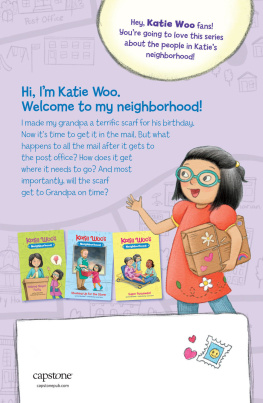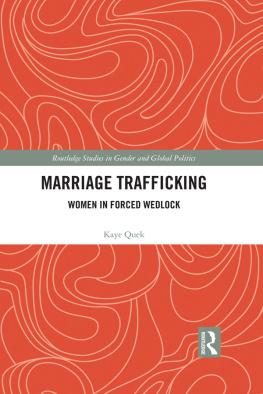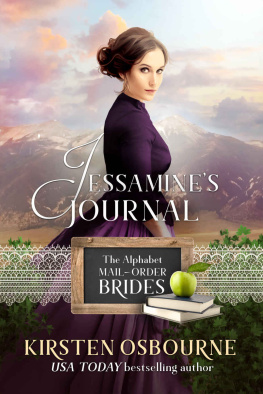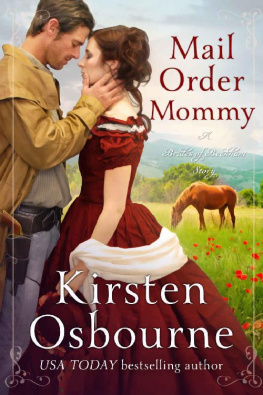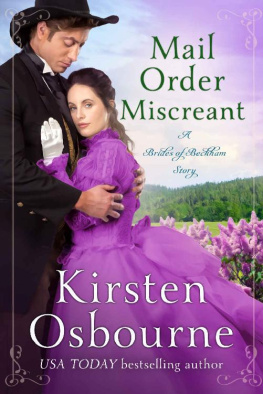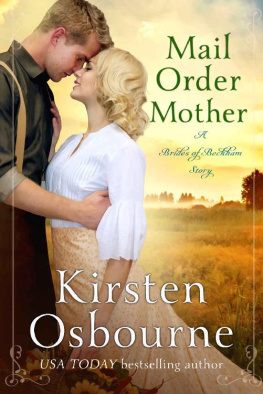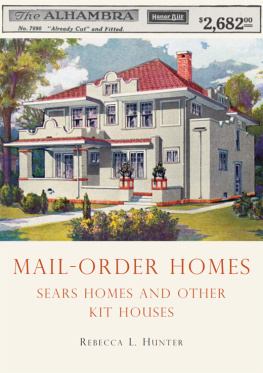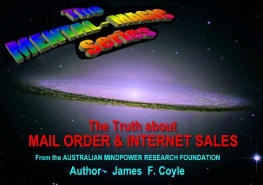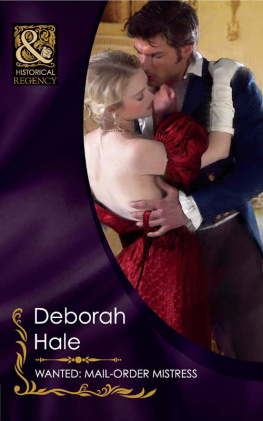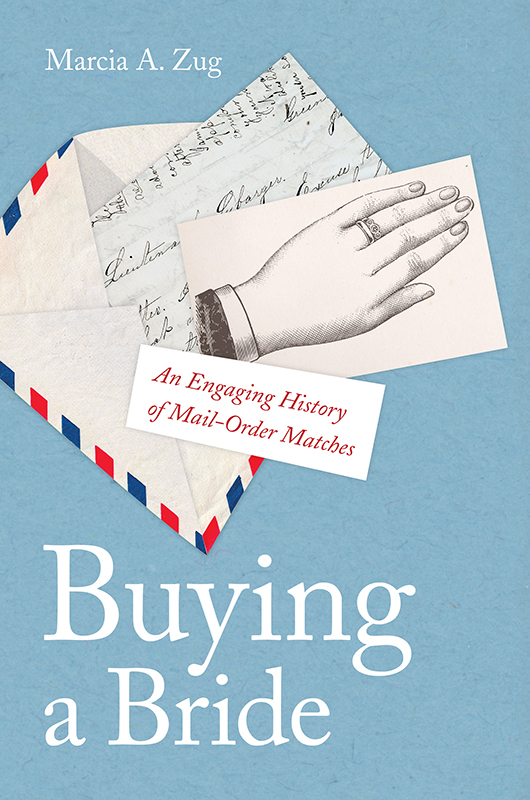
Buying a Bride
Buying a Bride
An Engaging History of Mail-Order Matches
Marcia A. Zug

NEW YORK UNIVERSITY PRESS
New York
NEW YORK UNIVERSITY PRESS
New York
www.nyupress.org
2016 by New York University
All rights reserved
References to Internet websites (URLs) were accurate at the time of writing. Neither the author nor New York University Press is responsible for URLs that may have expired or changed since the manuscript was prepared.
ISBN: 978-0-8147-7181-5
For Library of Congress Cataloging-in-Publication data, please contact the Library of Congress.
New York University Press books are printed on acid-free paper, and their binding materials are chosen for strength and durability. We strive to use environmentally responsible suppliers and materials to the greatest extent possible in publishing our books.
Manufactured in the United States of America
10 9 8 7 6 5 4 3 2 1
Also available as an ebook
For my husband, Geordie,
and my girls, Willa & Lucy
Contents
An earlier draft of the first chapter, Lonely Colonist Seeks Wife, was initially published in the Duke Journal of Gender Law & Policy 20 (2012): 85. Similarly, an earlier draft of Mail-Order Feminism was first published in the William and Mary Journal of Women and the Law 21 (2014): 153. I would also like to thank the following people for their help and support: James Dwyer, Martha Ertman, Mark Graber, Michael Greenberger, David Schleicher, Robin Wilson, Kevin Noble Maillard, Aziz Rana, Inge Lewis, Vanessa Byars, Madhavi Sunder, Jana Singer, Carol Young, and Joan Yablon.
Mention the term mail-order bride, and you are likely to conjure up two very different, very contradictory images. One is a sad and gritty portrait of an abused and desperate woman, probably very young, and almost certainly foreign, while the other is the rosy image of a strong and brave pioneer bride, possibly older, and quintessentially American. Buying a Bride attempts to reconcile these two images. Looking at the history of mail-order brides from the early years of the Jamestown colony to the present, this book examines how we arrived at these conflicting depictions and why the perception of mail-order marriages as formerly good but now bad is both simplistic and inaccurate.
Mail-order marriage has always contained competing elements of risk and reward. These marriages offer women an opportunity to improve their lives, yet they must abandon the security of their homes and families and marry a stranger. Today, women willing to take this chance are considered desperate and helpless, but this was not always true. Historically, mail-order brides were regarded as courageous due to their willingness to embrace the risks and uncertainties of mail-order marriage. The 1934 short story Object, Matrimony exemplifies this view.
Object, Matrimony was written by Rose Wilder Lane, the daughter of the iconic American author Laura Ingalls Wilder,
After receiving her answer, Clarinda rounds up a justice of the peace and a carriage and sets out for Jed Masterss house. Upon meeting Jed, Clarinda informs him that she is accepting his offer of marriage and insists on marrying him right away. Jed reluctantly agrees and the two are married. Then, immediately after the ceremony, Jed demands an explanation. He wants to know why Clarinda was in such a rush to marry and accuses her of being pregnant. She denies it, but refuses to explain herself. Instead, she simply states, Its a fair bargain. You advertised for a wife because you wanted a woman, any woman. I married you because I wanted a husband. When Jed continues to insist, she tells him, You can kill me, but Ill never tell.
Object, Matrimony illustrates both the risks of mail-order marriage as well as the strength and determination regularly ascribed to early mail-order brides. Initially, Clarindas secrecy and Jeds displeasure seem to indicate helplessness and vulnerability. However, at the end, her secret is revealed and it becomes clear that Clarinda is not a victim. Clarinda tells Jed that she had once been engaged to another man, but when she discovered his plan to elope with her friend she left him and came west to marry. She then triumphantly informs Jed that her former fianc recently lost his fortune and that she has just purchased his farm and evicted him and his wife. Mail-order marriage gave Clarinda the opportunity to reassert control over her life, avoid victimization, and even extract revenge. Nevertheless, the story concludes by suggesting that the most significant benefit Clarinda gained from her mail-order marriage was happiness. After Clarindas revelation, a stunned Jed asks his wife if she would still have her fianc if given the option. She lovingly replies, Goodness no,... I wouldnt have anybody but you.
Lanes story portrays mail-order brides as strong and resilient and shows how women could use mail-order marriage to cope with their powerlessness in a male-dominated society. At the same time, Lanes story also hints at the connection between mail-order marriage and broader national interests. The location of the town in the story is significant. Its setting at the end of the line signifies both the end of the railroad and the edge of U.S. control. Lanes town is reminiscent of the thousands of real towns that were created to secure U.S. control over Indian lands. In all of these border towns, the presence of women was considered crucial to national expansion. Consequently, both the territorial and federal governments routinely offered legal and financial incentives to spur female immigration. These incentives significantly benefited mail-order brides, but they were not costless. The arrival of mail-order brides frequently coincided with the displacement of native women. Unfortunately, this history is rarely acknowledged. Most favorable accounts of mail-order marriage tend to focus on the experiences of white, American women. When men and women of color used this form of marriage, the positive perception of these unions evaporated. Moreover, this shameful history continues to influence modern views regarding the practice.
Buying a Bride demonstrates that many of the widespread concerns regarding mail-order marriage have questionable origins. This book also emphasizes the similarities between historic mail-order marriage and its modern counterparts and demonstrates that the benefits offered by these marriages remain significant. Nevertheless, I think it is important to acknowledge that a focus on the advantages of mail-order marriage was not the original intention of this book. In fact, it was my own negative reaction to a magazine article on mail-order marriage that initially inspired this project. The article described the mail-order experience of a successful fashion photographer named Steven Baillie, who had tired of the American models and actresses he usually dated and decided it was time to settle down. After presenting this explanation, the article described how Baillie chose a mail-order bride company, how he selected his fiance from the hundreds of women available on the companys website, and how he believed he had finally found the one. The article then revealed that he had been horribly wrong.
The second half of the article detailed the transformation of Baillies fairytale romance into a nightmare. The smart, beautiful woman he had selected, who liked to cook and clean and dote on him, also had an unexpected temper. She became jealous of his friendships with other women, including the daughter of a female friend, and Baillie quickly realized the relationship was not going to work. By this point, the woman was pregnant, but Baillie didnt care. When her visa expired, he chose not to marry her, and sent her home. The article then ended with Baillies glib reflection that there are worse problems than dating American models. He stated:
Next page

